
At the beginning of January, Michael Sclafani, who co-owns the Park Deli skate shop in Brooklyn, placed an order for 25 decks with his producer. He’s been ordering shop decks for long enough to know that Lunar New Year celebrations shut down production in China—where the heat transfers for the deck graphics are made—and made sure to order them early enough that they’d be ready for spring.
A month later, in February, he called the print shop to check on how things were coming, and the prognosis didn’t sound good: “[The print shop’s owner] started sending emails like, ‘I’m having trouble getting these transfers, I’m trying to find somebody else. I’m trying to see when this factory is open—they keep saying it’ll be another week.’” By that point, China was in lockdown, as the country attempted in vain to prevent the spread of coronavirus that was surging across the country.
In the weeks that followed, the virus took hold over the world. It upended the rhythms of the biggest cities in the country as cases multiplied, and a deluge of economic disaster began to pour over the economy, flooding entire fields of work without an end in sight. Bars and restaurants may never be the same, layoffs spread across every branch of the media, and the skateboarding industry (which, for the purposes of this article, means the supply chain of hardgoods from producer-to-distributor-to-shop-to-customer) seems in a more precarious place than ever.
The skateboarding business is a delicate house of cards, built on razor-thin profit margins and made from retail prices that have barely changed since 1992. Will it weather the storm?
There are no good times for a pandemic to encircle the globe, but for a skate distributor, the end of winter is a particularly bad one. “Right after Thanksgiving and all the Black Friday sales, everything with your business flip-flops: the money starts dwindling down, but then all the expenses start piling up because you have to produce everything for spring,” explained Josh Stewart, who owns Theories of Atlantis, the US distributor of brands like Isle, Magenta, and Evisen.
“It’s this big gamble: you spend all this money on credit and take out loans to fund it. It’s like watching the tide go out. It always comes back in, and this is the year where it just finally just never came back.”
Theories is based in New York City, where public schools had closed to try and curb the spread of the virus when Stewart returned from a filming trip on March 17th. Seeing that the city was soon to go into a greater shut-down, he laid off all of Theories employees so that they could apply for unemployment, and started calling the shops who had pre-booked orders for spring to see if they were still interested. Only a third of the shops were still willing to take their orders. None of his international distributors were.
“It’s like watching the tide go out. It always comes back in, and this is the year where it just finally just never came back.”
On top of this financial stress, he was also battling what was likely COVID-19, though his case was mild enough that he didn’t need hospitalization (which is, more or less, the only way to be tested in New York). Now on the mend, he is trying to figure out how to deal with the ongoing crisis at Theories. He has already conceded that the best-case scenario is that the spring lines will become the summer lines, which means losing revenue from an entire seasonal collection and paying to warehouse product that isn’t moving.
In the meantime, he is racked with difficult questions about how and when to invest in more production for TOA hardgoods, including their upstart Dial Tone Wheel Co. that was starting to find its groove. “Wheels are expensive to make,” he said. “How risky is it to put in this money to produce all this stuff? Can you count on the fact that in six weeks, businesses are going to be open again? I don’t think so.”
Across the country at Dwindle (Enjoi, Almost, Tensor…etc), things are a little less dire. Their spring line of hardgoods set sail from China before the country shut down, and while their factory in Shenzhen was closed for a month, it is back in operation according to Dwindle’s president, Bod Boyle. In California, they have had success with rewiring the company to work from home through the pandemic with minimal layoffs. LA County, where Dwindle’s Santa Fe Springs warehouses are located, has issued a stay-at-home order, so they temporarily moved their product to a third-party warehouse outside of that mandate.
“Everyone from the office is working remotely, but our warehouse remains open and we can continue shipping with a skeleton crew,” he said in an email. “We have strict guidelines for these staff to maximize everyone’s safety in the workplace, which is certainly adding some complication to the shipping function.” He noted that while Dwindle is able to fill orders, they have primarily been coming from other countries, with fewer-than-usual coming from US-based retailers.
Even that is more than can be said of NHS or Deluxe, who managed to transition their employees to telecommuting in mid-March, but were unable to open their shipping departments because of local government restrictions.
Both distributors own some of the most storied deck brands in skateboarding, meaning boards from Santa Cruz, Anti-Hero, and Real might soon be in short supply. But the skate shop real estate that will be most affected until they start shipping orders again is the hardware case. NHS owns Independent trucks, OJ wheels, and Mob grip tape. Deluxe owns Spitfire, as well as both Venture and Thunder trucks. Between the two, that’s almost all the most popular brands of trucks, wheels, and grip.
When San Francisco renewed its shelter-in-place order at the beginning of April, it allowed businesses with existing inventory to engage in basic operations, meaning Deluxe could start to ship orders again. “We’re working on how we can do that with two or three people doing very limited orders,” said Jim Thiebaud from Deluxe.
“We were able to get a couple orders out yesterday, but you’re talking about a skeleton crew, just trying to see if we can do it.” Those brands are also available from third-party distributors like AWH and Eastern Skate Supply, but limited inventories and the looming threat of sustained closure due to the pandemic have left some skate shops wondering whether a hardgoods drought is on the horizon.
“I have it in my brain that come July, there’s going to be a grip tape and wheel shortage if it keeps going the way it’s going,” said Dennis Burdick, general manager of Familia Skateshop in Minneapolis. “I think we have 30 sets of wheels left in the case right now, and who knows when Spitfire can open up again? Same thing with Mob Grip. I just did a panic order—I have 100 sheets on deck that just happened to come right before everything shut down.”
“I have it in my brain that come July, there’s going to be a grip tape and wheel shortage if it keeps going the way it’s going.”
Despite hardgoods being the highest selling items in shops right now, there isn’t a shortage yet, and Deluxe and NHS are working to prevent one from occurring. That said, the virus has been playing whack-a-mole with regional economies, including the ones responsible for hard goods. US factories started shutiing down just as China’s got back to work, and COVID-19 cases are on the rise in Mexico, potentially disrupting facilities south of the border too.
After every shutdown, it will take time for production to get back up to speed. “You do not flick a switch and a factory is up and running again,” Jeff Kendall, the president of NHS said in an email. “Ramping production back up takes some time. So, supply-shock issues will be a problem into summer and possibly the fall.” He remains optimistic that NHS may be able to open the warehouse in early May.
It’s worth noting that even if hardgood levels start to run low, hoarding all the trucks, wheels, and grip you can afford isn’t necessary. Skating hard enough to wear out a pair of trucks or set of wheels puts you at higher risk for seriously injuring yourself and placing an extra burden on an overworked medical system, and, there is no guarantee (unless greedy hoarders create one) that your local shop will run out of anything.

Every day that the infection rate rises the shut-down continues, meaning more lost sales for shop owners. As Minneapolis thaws into spring, with kids out of school and a relatively small number of COVID-19 cases in the region, foot traffic is suddenly up around Familia.
“The people walking by the store wanting to shoe shop, it’s like dammit,’” Burdick said. “That’s easily 30 pairs of shoes I’m missing out on a day. And the phone has been ringing off the hook.” Decks and completes are both selling well, over the phone and through the online shop, but overall sales are lower than what they would be if the store was physically open.
Their other location, which has an indoor park, is also closed, costing them rent they can’t recoup since skateparks are classified the same way as gyms are under Minnesota’s stay-at-home order. Still, the shop was founded during the last recession, so they will head into the eventual slowdown with some experience. “We’re still getting daily sales. It could be a lot worse—we could be doing zero-dollar days,” he said. “At this point, if we do a $100 day, I’ll take that as a positive. I’m sure there are shops out there that are doing a few zero-dollar days in a row.”
“At this point, if we do a $100 day, I’ll take that as a positive. I’m sure there are shops out there that are doing a few zero-dollar days in a row.”
New Orleans, unfortunately, has not fared as well as Minneapolis. After a massive spike in COVID-19 infections likely spread by a raucous and busy Mardi Gras weekend, the city is now grappling with the highest death rate in the country.
In the French Quarter, the businesses around Humidity skate shop are boarded up. “The Quarter is dead. It’s kinda eerie,” said Philly Santosuosso, who owns the shop. “Even during Katrina, there were bars open.” Humidity is closed to the public as well, and Santosuosso has applied for grants and loans to keep paying his two employees, who help pack boxes for the online orders that are sustaining the business for now.
Still, Santosuosso is more concerned about safety than sales. “I’m not really fond of trying to sling a ton of shit,” he said. “Just go chill, man. If you need something, of course we’ve got you, but at the same time: chill the fuck out.” He spends his chill time working on new content for the shop, including collaborating with other friends in the industry who are in a similar boat. He is confident that they’ll be able to make rent for May. Beyond that, though, the future for Humidity, and other skate shops across the country, is unknown.
As weeks at home settle into a month, city and state governments take turns rescheduling our alleged return to normalcy. For skate shops, who contend with financial hardships under the best of circumstances, the future is forebodingly opaque.
Park Deli was able to expedite getting their decks through another producer, but hardgood sales have dipped about a quarter of what they would normally be at this time of year. Social distancing, which remains the single most important thing we can do to prevent the spread of the virus and eventually move us towards whatever normalcy awaits on the other side, adds another layer of precariousness to the question of what lies ahead.
“Who knows how long it’s going to go on for?” Sclafani said. “Right now you walk down the street and every store is closed except for a bodega, the odd pizza place, and liquor stores. But what’s going to happen when this is over? Everybody’s roll gates are gonna be up, and business is gonna be booming? Or is everybody going to go out of business?”
Related Posts
Comments
Popular
-
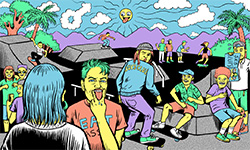 MY EXPERIENCES IN SKATEBOARDING
MY EXPERIENCES IN SKATEBOARDING
"I've been terrified of garnering the reputation of 'ramp-tramp' or 'pro-ho' just from spending time with skaters."
-
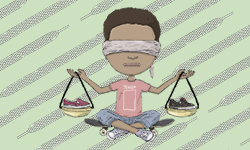 WHAT WOULD MAKE SKATERS DITCH THE BIG SHOE BRANDS?
WHAT WOULD MAKE SKATERS DITCH THE BIG SHOE BRANDS?
We asked younger skaters how small shoe brands could win back their business from the big budget behemoths.
-
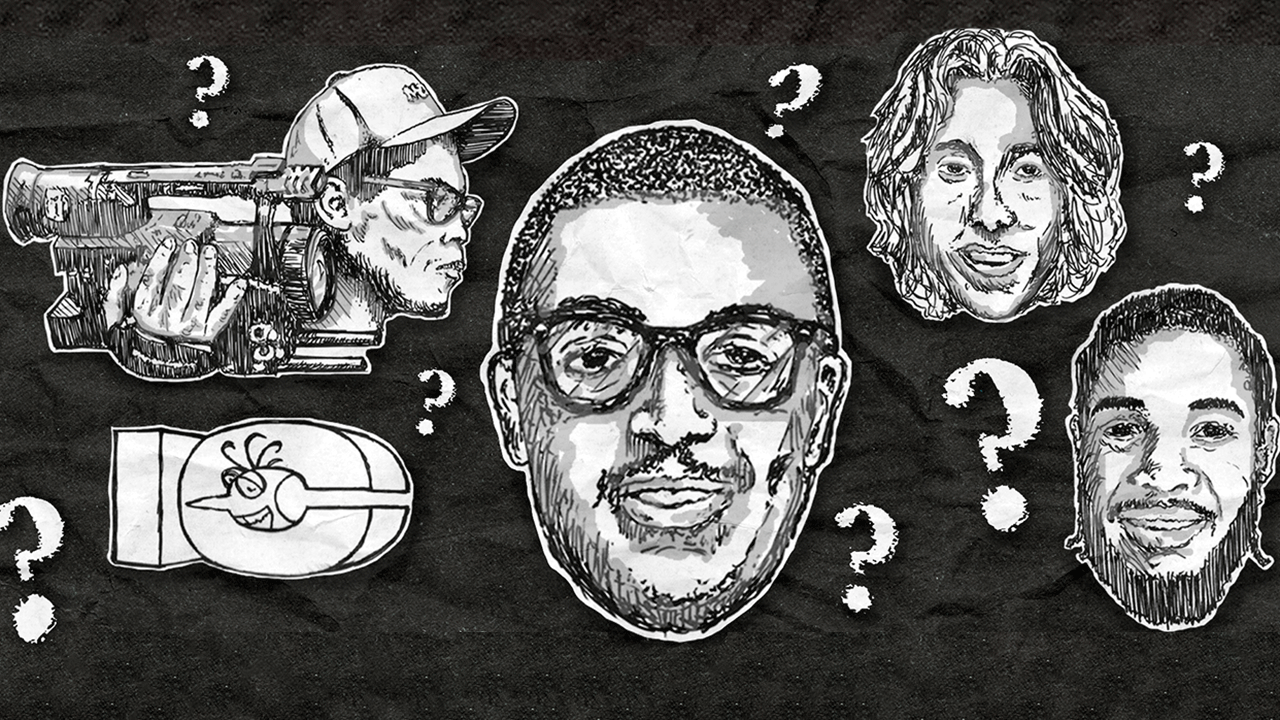 WHAT THE HELL IS GOING ON WITH ILLEGAL CIV?
WHAT THE HELL IS GOING ON WITH ILLEGAL CIV?
The Illegal Civ stuff feels like an ongoing soap opera, so to air out any confusion we talked to a few key characters.
-
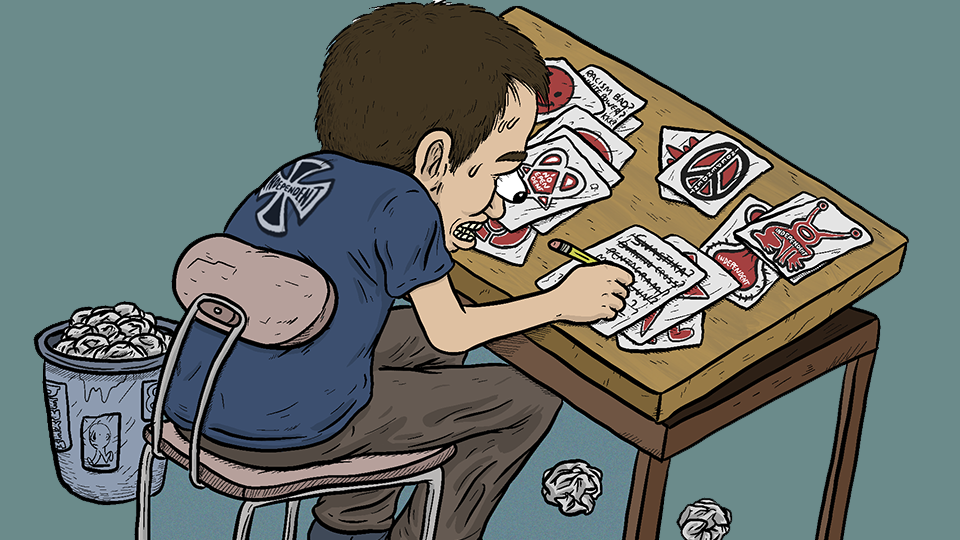 8 ARTISTS REIMAGINE THE INDEPENDENT LOGO
8 ARTISTS REIMAGINE THE INDEPENDENT LOGO
What would an Independent rebrand even look like?
-
 BRIAN SUMNER ON LEAVING THE SKATE INDUSTRY AND FINDING CHRISTIANITY
BRIAN SUMNER ON LEAVING THE SKATE INDUSTRY AND FINDING CHRISTIANITY
"People are going to hate you for different stupid reasons, but people shouldn’t be divided over the faith."





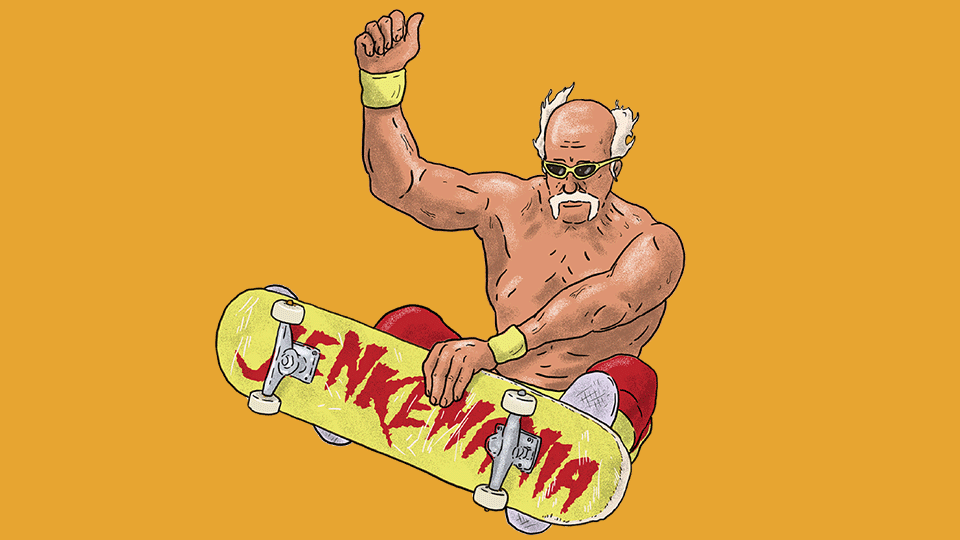
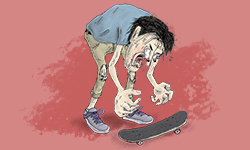
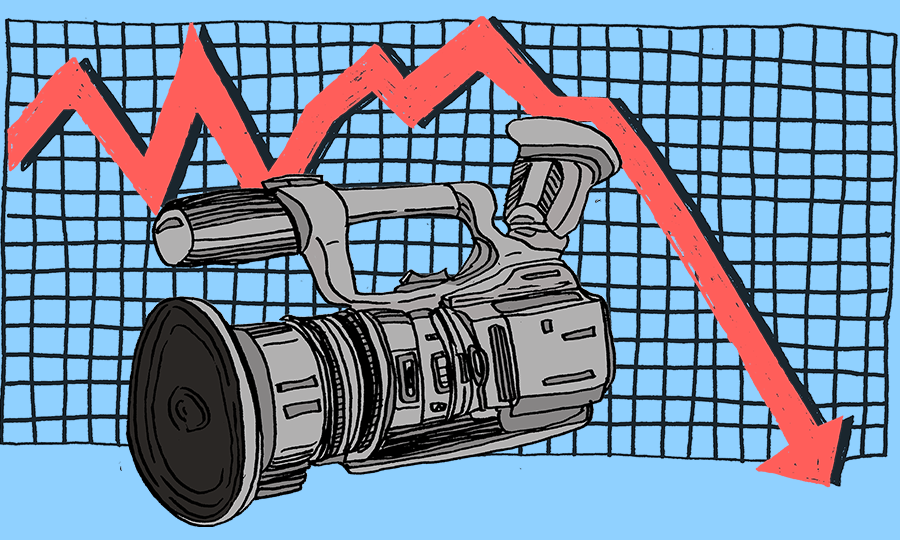
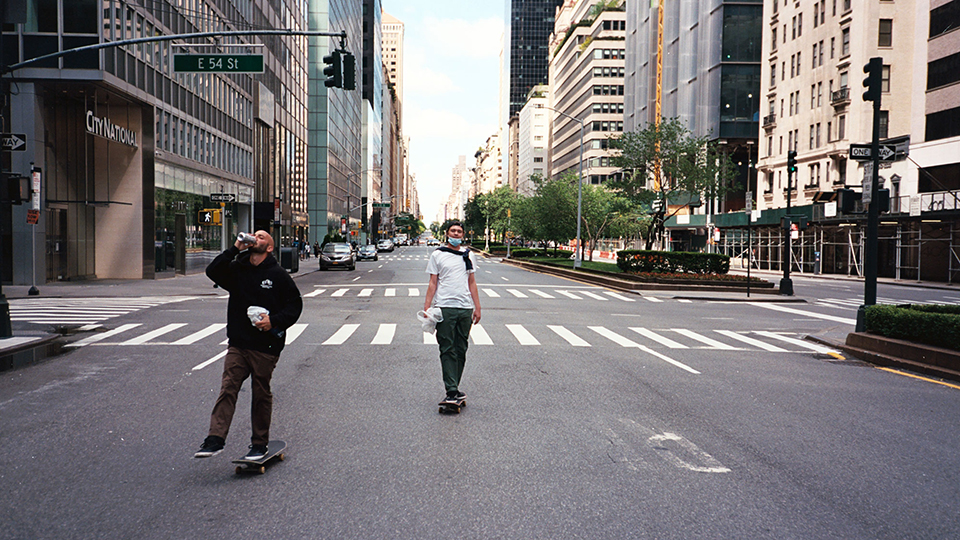
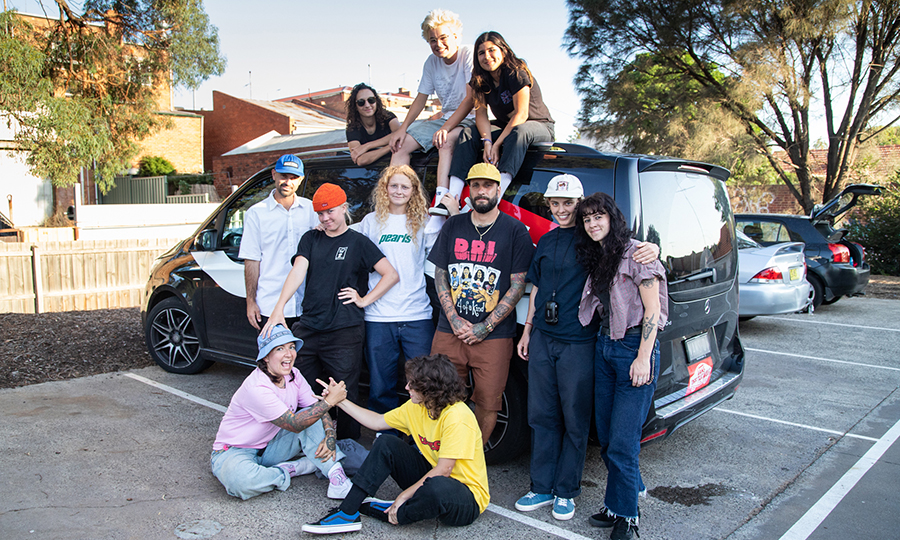

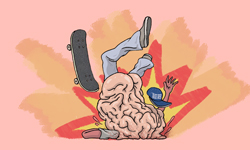
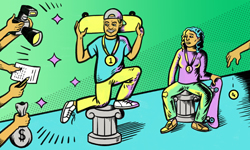
April 9, 2020 3:15 pm
shit will be back to normal by july. positivity… pass it on.
April 12, 2020 4:02 pm
… and if you believe that, you believe anything. We’re either in for the greater recession, or the greater depression, and that really is just the start. Anyway, the expanding sun will sterilize the Earth in due course.
July 25, 2020 9:14 pm
This aged well, lol
August 11, 2020 8:32 pm
it’s now august. that’s the month after july.
April 9, 2020 3:53 pm
On a different note, i’m just bummed to see skaters hanging out in close groups at the closest skatepark to me here in Reno. They just don’t get it. People in this town are dumb anyways but wtf?
April 10, 2020 12:38 am
Yep. Dumbfucks like that got everything shut down here in LA.
April 9, 2020 7:22 pm
Let’s be safe, everybody! Mitigating this plague is more important than going out skating. Let’s be smart and safe. And when all this is over, let’s hope Indy brings production back to the States – and makes the six-hole baseplates again!!
May 12, 2020 4:31 am
Why do you want 6 hole baseplates back?
June 3, 2020 4:15 pm
seriously do you even skate? I doubt it with those comments. Why dont you troll and fashion page?
April 9, 2020 11:53 pm
maybe this will bring the cost of a deck out of $50 and actually correlate with how much it costs the shop to keep them in business. I would gladly pay $100/board if it meant the shop would stay alive.
April 10, 2020 2:24 am
So pay them $100
June 3, 2020 4:15 pm
people say dumb shit man